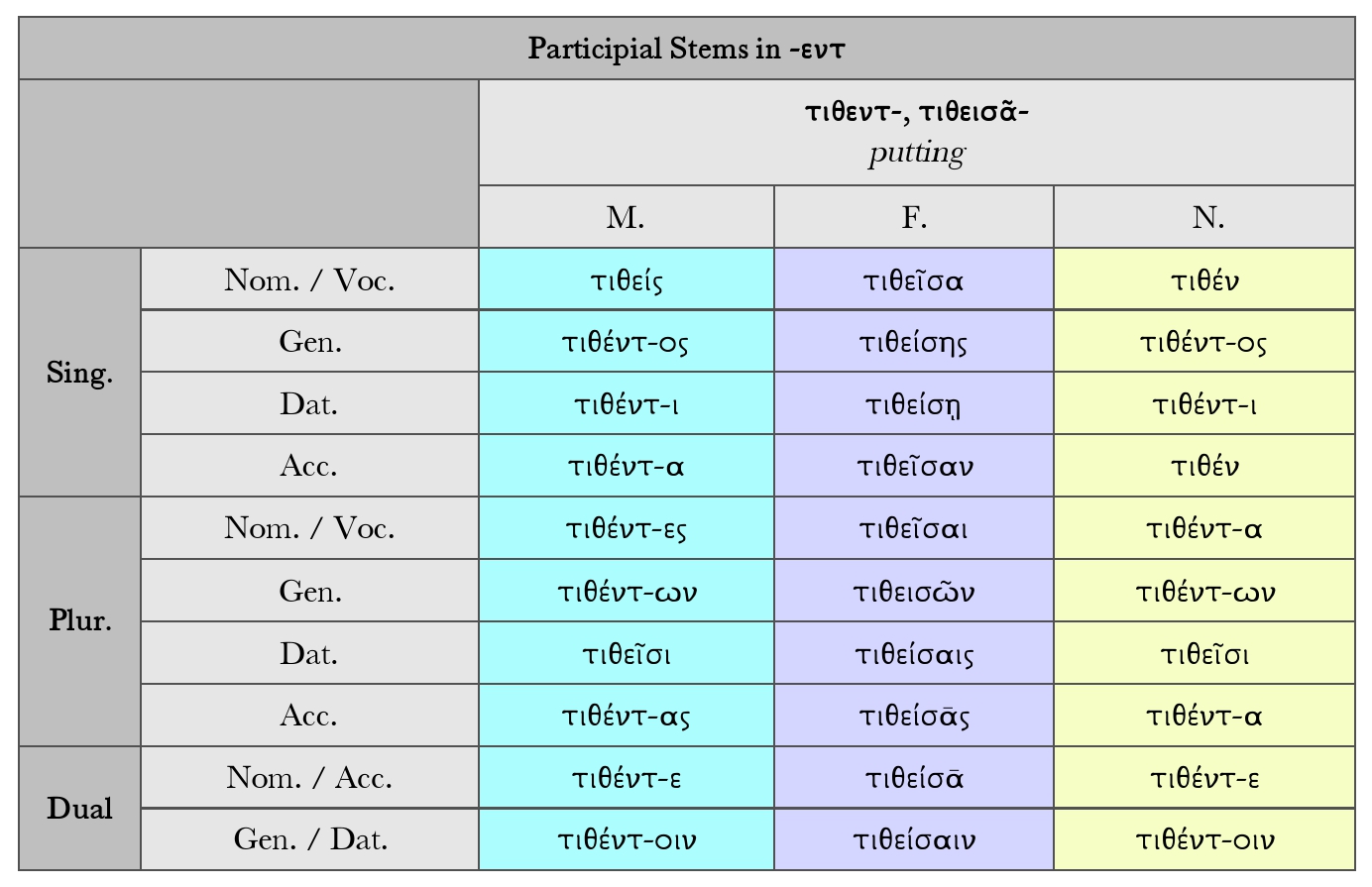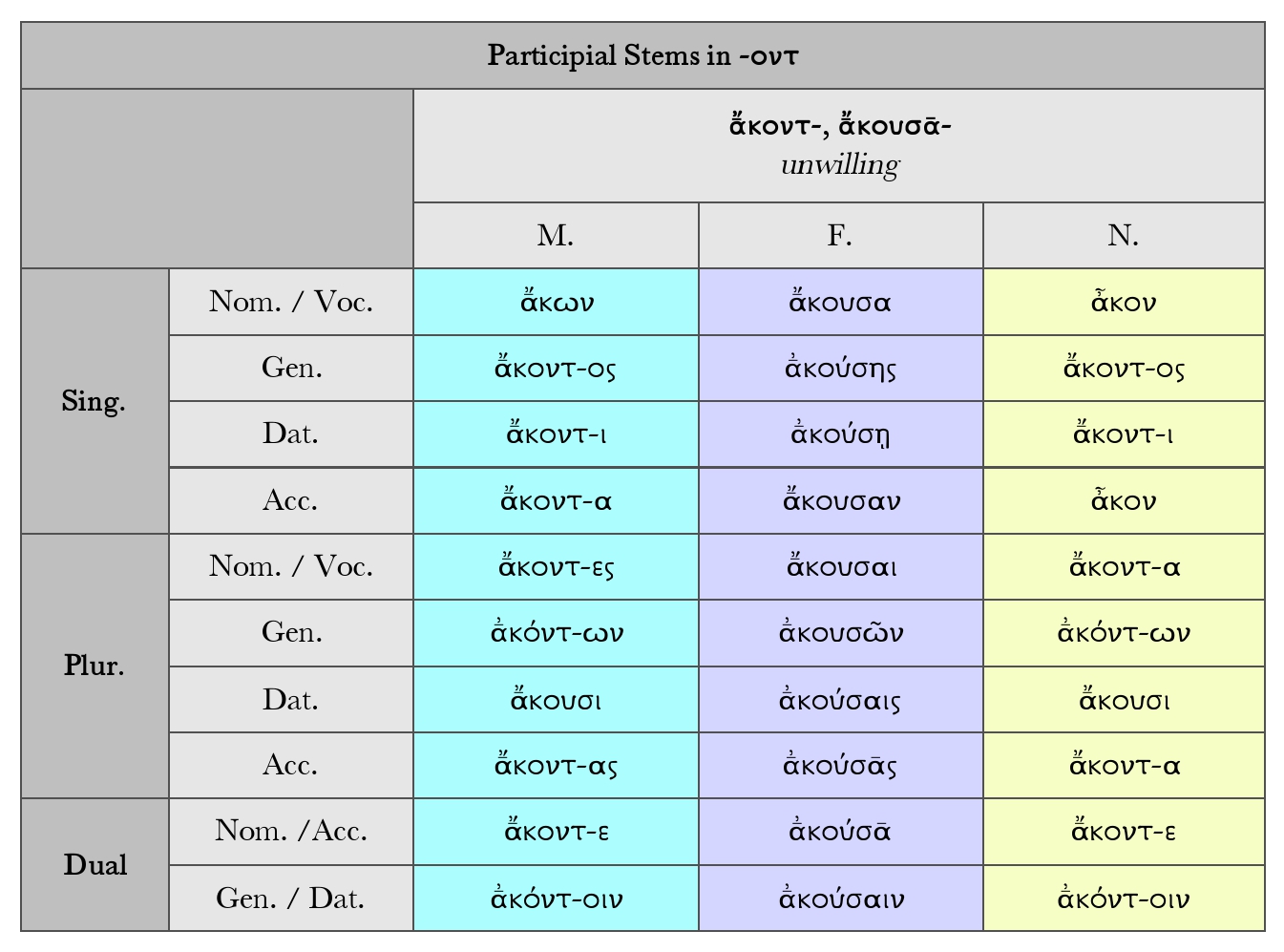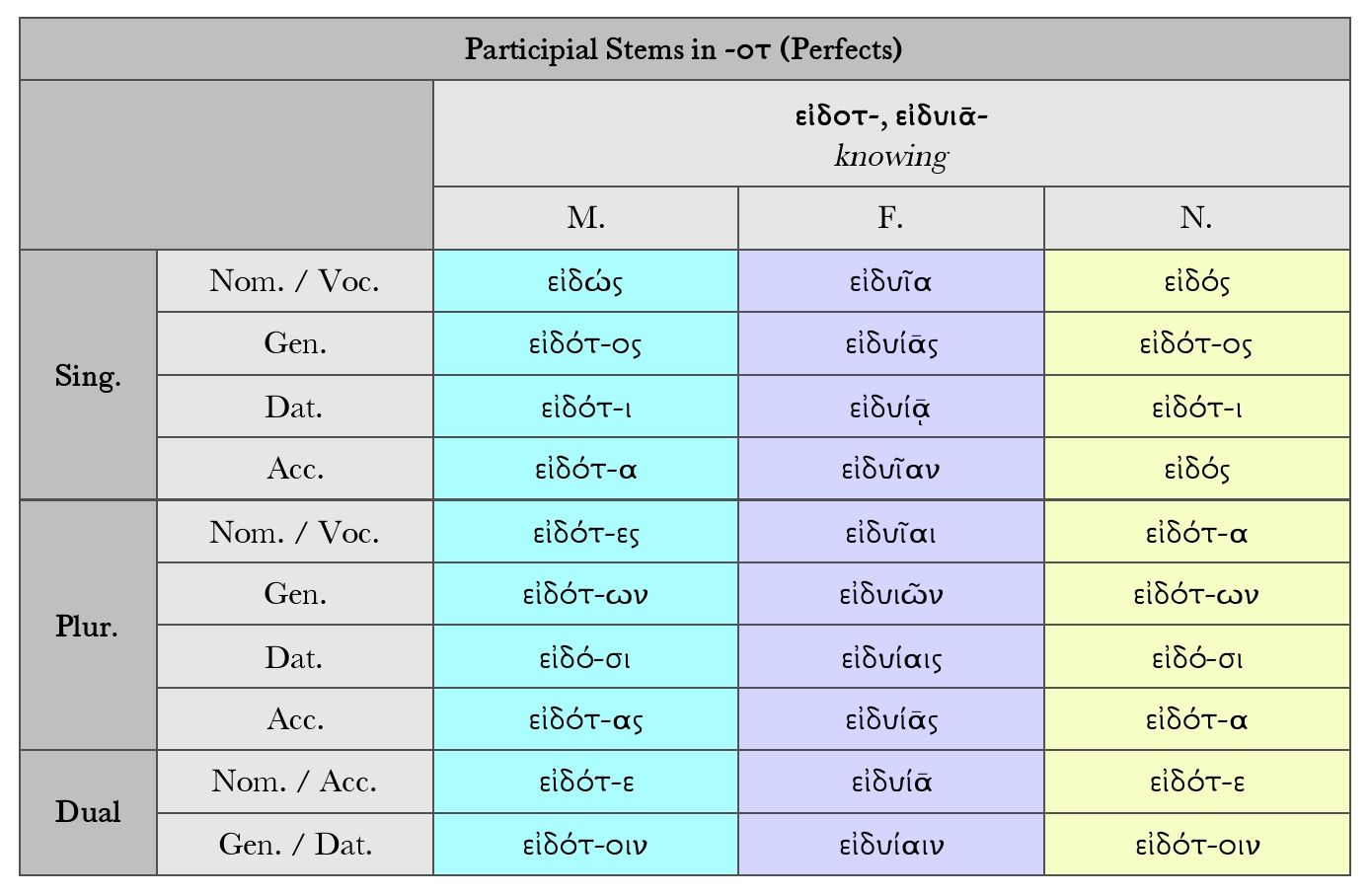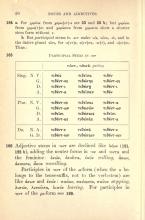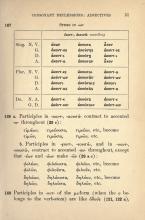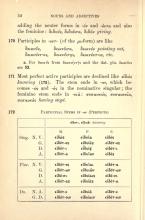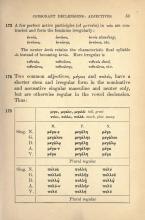165. Participial Stems in -εντ
166. Αdjective stems in -οντ are declined like λέων (§§ 121 and 122.b), adding the neuter forms in -ον and -οντα and the feminine.
ἑκών, ἑκοῦσα, ἑκόν willing
ᾱ̓́κων, ᾱ̓́κουσα, ἆκον unwilling
Participles in -οντ of the ω-form (when the -ο- belongs to the tense-suffix, not to the verb-stem) are like ᾱ̓́κων and ἑκών.
παύων, παύουσα, παῦον stopping
λιπών, λιποῦσα, λιπόν leaving
For participles in -οντ οf the μι-fοrm see § 169 (below).
167. Participial Stems in -οντ
168. a. Participles in -αοντ-, -αουσᾱ- contract to accented -ω- throughout (§ 29.c).
τῑμάων : τῑμῶν
τῑμάουσα : τῑμῶσα
τῑμάον : τῑμῶν, etc.
b. Participles in -εοντ-, -εουσᾱ- and in -οοντ-, -οουσᾱ-, contract to accented -ου- throughout, except that -έων and -όων make -ῶν (§ 29.a-c).
φιλέων : φιλῶν
φιλέουσα : φιλοῦσα
φιλέον : φιλοῦν, etc.
δηλόων : δηλῶν
δηλόουσα : δηλοῦσα
δηλόον : δηλοῦν, etc.
169. Participles in -οντ- οf the μι-fοrm (when the -ο- belongs to the verb-stem) are like ὀδούς (§§ 121 and 122.a), adding the neuter forms in -όν and -όντα and also the feminine.
διδούς, διδοῦσα, διδόν giving
170. Participles in -υντ- (οf the μι-fοrm) are like
| δεικνῡ́ς, | δεικνῦσα, | δεικνύν | pointing out |
| δεικνύντ-ος, | δεικνῡ́σης, | δεικνύντ-ος, | etc. |
a. For δεικνῡ́ς from δεικνυ(ντ)ς and the dat. plur. δεικνῦσι see § 53.
171. Most perfect active participles are declined like εἰδώς (knowing, § 172, below). The stem ends in -οτ, which becomes -ώς and -ός in th
πεπαυκώς, πεπαυκυῖα, πεπαυκός having stopped
172. Participial Stems in -οτ (Perfects)
173. A few perfect active participles (of μι-verbs) in -αώς are contracted and form the feminine irregularly.
| ἑστώς, | ἑστῶσα, | ἑστός | standing |
| ἑστῶτος, | ἑστώσης, | ἑστῶτος, | etc. |
The neuter ἑστός retains the characteristic final syllable -ός instead of becoming ἑστώς. Mοre irregular is
| τεθνεώς, | τεθνεῶσα, | τεθνεός | dead |
| τεθνεῶτος, | τεθνεώσης, | τεθνεῶτος, | etc. |

